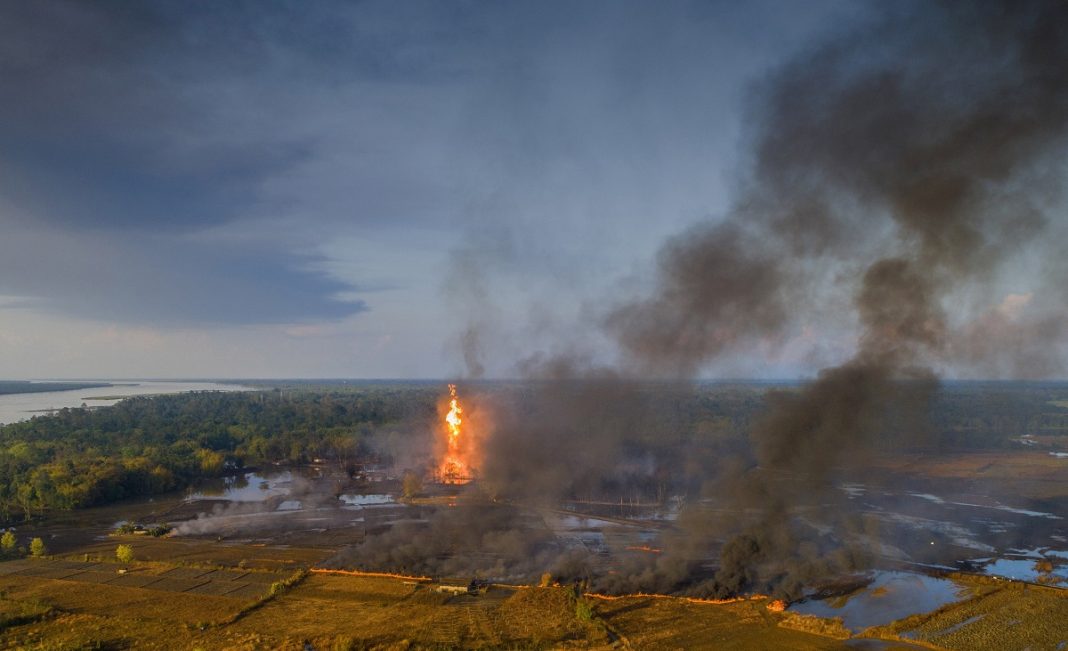Guwahati, Dec 15: The National Green Tribunal (NGT) has dismissed claims for additional interim compensation by families affected by the 2020 Baghjan oil well blowout.
The NGT rejected the claim for additional interim compensation for the 161 families under Miscellaneous Application No.31/2023/EZ, as their reclassification to Category-(ii) aligns with the existing compensation framework.
The Baghjan oil well blowout on May 27, 2020, caused extensive damage, leading to loss of life, displacement of 9,000+ people, and significant environmental destruction around Dibru-Saikhowa National Park and Maguri-Motapung Wetland.
Initial assessments reported damage to 1,580 hectares of agricultural and tea fields, alongside contamination of water bodies. The NGT-appointed Justice BP Katakey Committee categorized victims into three groups, recommending interim compensation of ₹25 lakh (Category-I), ₹10 lakh (Category-II), and ₹2.5 lakh (Category-II).
Initially, 12 families under Category-I received ₹25 lakh each as their homes were destroyed. A petition filed by Manoj Hazarika sought additional compensation for 161 families added to Category I and 439 families under Category II. The petition claimed these families deserved ₹10 lakh each as interim compensation.
The tribunal concluded that the 161 families added later to Category I did not meet the same criteria as the initial 12 families whose homes were entirely gutted. The 161 families, classified as having “severely damaged” homes, were instead placed in Category-II, entitling them to ₹10 lakh, with ₹15 lakh already paid to each as an advance.
The NGT also stated that the 439 families in Category II had already received their due compensation of ₹10 lakh each and were not entitled to additional amounts.
The NGT clarified that its ruling pertains only to interim compensation. Claims for final compensation remain open in related cases that are still pending adjudication.
Beyond human displacement, the incident caused widespread ecological damage, impacting wildlife, agriculture, and livelihoods in the region. The tribunal emphasized the principle of equitable compensation, rejecting attempts to equate families with varying levels of damage.
Final compensation decisions will depend on evidence presented in the ongoing cases.
The tribunal has upheld the categorization and compensation recommendations made by the Justice BP Katakey Committee and reiterated the principle of ensuring equitable treatment based on the degree of damage suffered. The final compensation for all affected parties is still pending determination, subject to the submission of material evidence in the ongoing cases.




